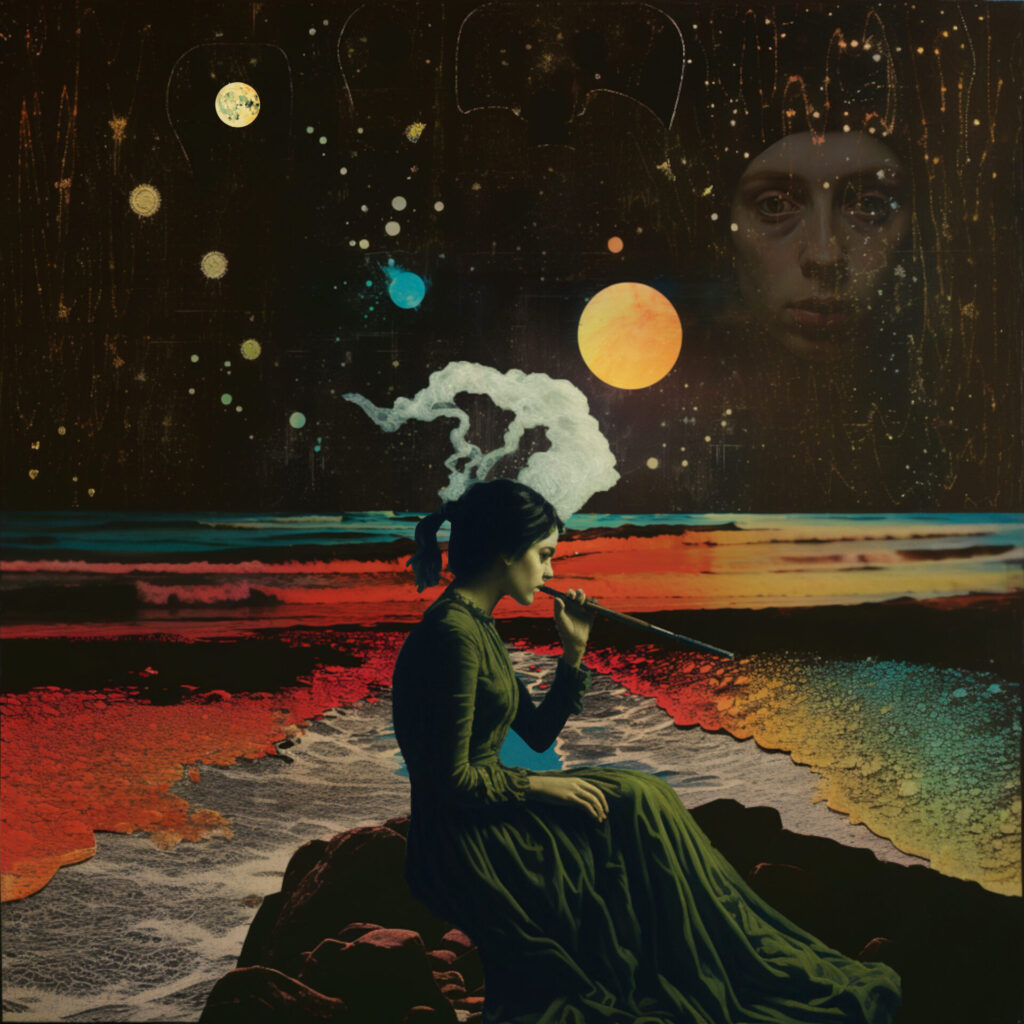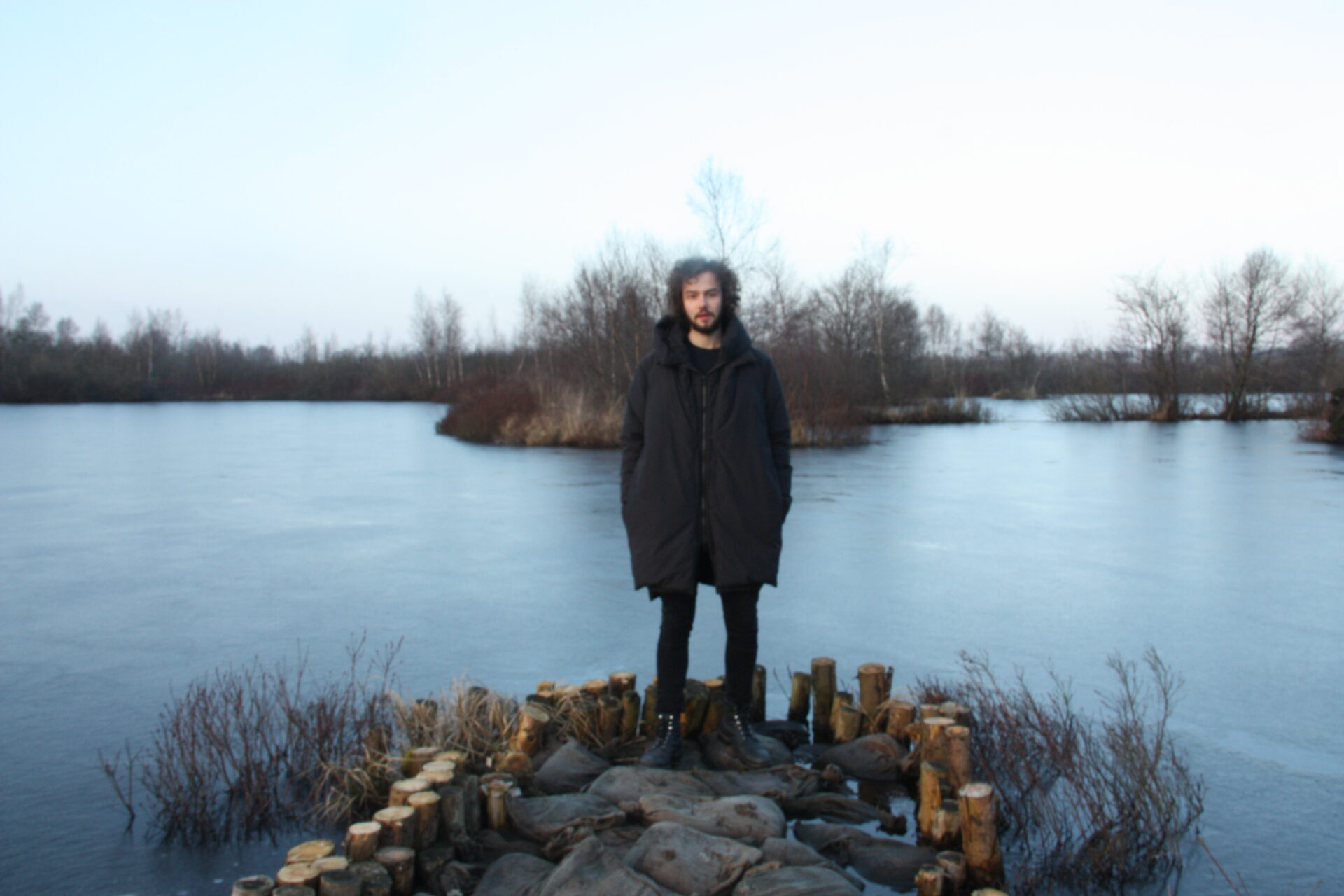We are thrilled to introduce you to Tilla, an artist whose music transcends boundaries, inviting listeners on a journey through time and space. Based in the vibrant musical hub of Hamburg, Tilla has masterfully combined electronic soundscapes with hauntingly distorted vocals to create an otherworldly experience that is both captivating and unforgettable. Check out the exclusive interview below:
1. Can you tell us a bit about where you come from and how it all got started?
TILLA: Music’s been my companion for most of my life. I started with a recorder flute in my fourth year of life and went deeper into music when I started playing piano at 8. Some years later I dived into the guitar and at that time it became a thing to express myself in writing songs. I’ve started to learn playing drums, bass, to sing and to record after. And I never stopped that, and I never wanted to do anything else than music. So yeah, my musical career started with a recorder flute (laughs).
2. Did you have any formal training or are you self-taught?
TILLA: Both. I had a lot of piano lessons, I had a really good teacher who beat me through classical bootcamp. I even studied classical piano for a brief period before I dropped out. With guitar it was the same, but I’d say that I learned most from learning by heart discographies of well-known artists. I started with the Chili Peppers, I learned all their songs and continued with AC/DC and Led Zeppelin and so on and so on. Guns N’ Roses as well, so I was really the rock type back then (laughs). First band was also a rock band. Yeah, and after I dropped out of university I didn’t have a teacher, so all the recording, producing stuff I learned by doing myself and having all these fantastic, creative people around me, working on their own music and exchanging ideas. Producing songs together, playing together is my training nowadays. Productionwise I learned a lot from my good friend John Hessen who I share a studio with.
3. Who were your first and strongest musical influences and why the name ‘TILLA?
TILLA: My first influence was, apart from Chopin, maybe the Red Hot Chili Peppers. In my later childhood I grew up with alt rock, listening to a radio station in the north of Germany called Delta Radio. If we go back to before that, my first musical memory might be Eiffel 65 with I’m Blue (laughs). Maybe that’s a childish thing to dig, but I kind of still dig this song. I kind of dig most of this Eurodance stuff. I was born in 95 and I remember this 90s music as my earliest childhood memories, which makes for a feeling of home. The name Tilla, it’s based on my name Tillmann, which is a man’s name and I thought it’d be very clever to have female ending, while I don’t identify as female. It’s a statement that can be read in any way a listener wants to interpret this.
4. What do you feel are the key elements in your music that should resonate with listeners, and how would you personally describe your sound?
TILLA: Key elements? I’m not sure. Normally I don’t think about it this way. If you’d ask me, I’d say I like doing music that has a musical hook. There’s always this little voice inside me that urges me to do things differently. I try not to follow that too intensely, because I believe that art should be able to flow freely. My sound – there’s a lot of Kraut inside, psychedelic, Bonham drums, a lot of 60s, 70s aesthetic. I’m really getting into the more upbeat stuff lately, though. 2019, I released an album called ”Odyssee” under the name Goldmouth that was no easy listening stuff at all. Nowadays I try to be more positive in expressing myself. I hope I achieved that with my latest single, Keep Your Head Up.
5. For most artists, originality is first preceded by a phase of learning and, often, emulating others. What was this like for you? How would you describe your own development as an artist and music maker, and the transition towards your own style, which you call OPIUM POP?
TILLA: Yeah, I think that emulating others is a key element in my evolving and developing as an artist. To this day I’m emulating others, be it by taking ideas from lyrics or books that orbit around a topic or music that makes me feel a certain way. And I take that all in and it comes out one way or another way. The name opium pop is not so much a genre name, more a feeling of a drug-induced state in which you are flowing and drifting through the time you spend awake. Taking all the bad things that derive from that away, this is the feeling I want to create with my music.
6. What’s your view on the role and function of music as political, cultural, spiritual, and/or social vehicles – and do you try and affront any of these themes in your work, or are you purely interested in music as an expression of technical artistry, personal narrative, and entertainment?
TILLA: I’d say my work is highly political, though not displayed in a way that is obvious. And I think it’s a perfectly legit, even important way to create art, for anyone. Culture and Politics are intertwined with each other. I don’t think it’s the key element in human development, but it serves as a giver of ideas and it provides room to think in utopias. I believe music functions as a big part of society, still. I’m not so much interested in the technical artistry. Of course, when the ego kicks in, it becomes a thought now and then, but I’m mainly in this because I want to express an emotion and I think that with the kind of lyrics that I write, it translates into a spiritual or cultural or political thing, that I try to embrace with my music.
7. Do you feel that your music is giving you back just as much fulfillment as the amount of work you are putting into it or are you expecting something more, or different in the future?
TILLA: I’m 28, so I I’d say definitely – it’s definitely giving me back more than enough to continue. I can’t imagine doing anything else to be honest, and still, I expect the journey to continue, as life is continuing. So the moment I would have the feeling that it’s not changing anymore, that I’m not developing anymore, I’d certainly stop it because isn’t development what it’s all about?
8. Do you think is it important for fans of your music to understand the real story and message driving each of your songs, or do you think everyone should be free to interpret your songs in their own personal way?
TILLA: No I don’t think so at all. I’m thinking about those hits, for example The Police – Every Breath You Take, that became a hit perceived as a love song but is the exact opposite, it’s about a stalker. That these songs are spinning their own tales after they’re released, it is really exciting to me. I’d like everyone to feel free to interpret the feeling that my music hopefully spreads. I believe this is really important for human development, to be able to take something for what it is to yourself, once in a while.
9. What has been the most difficult thing you’ve had to endure in your life or music career so far?
TILLA: I’ve been in a really unhealthy relationship for some years and I couldn’t get out. It took me some years after I got out of this relationship to ground myself again. It took most part of my twenties to go through this process.
10. On the contrary, what would you consider a successful, proud or significant point in your life or music career so far?
TILLA: I’m alive, I have the privilege of making music all day. I have the sweetest child on earth. I’m doing music for a living. I’d say it’s really fun. It’s all a big journey and after 28 years I’m really starting to get into it. I like that.
KEEP IN TOUCH:
INSTAGRAM | SPOTIFY

